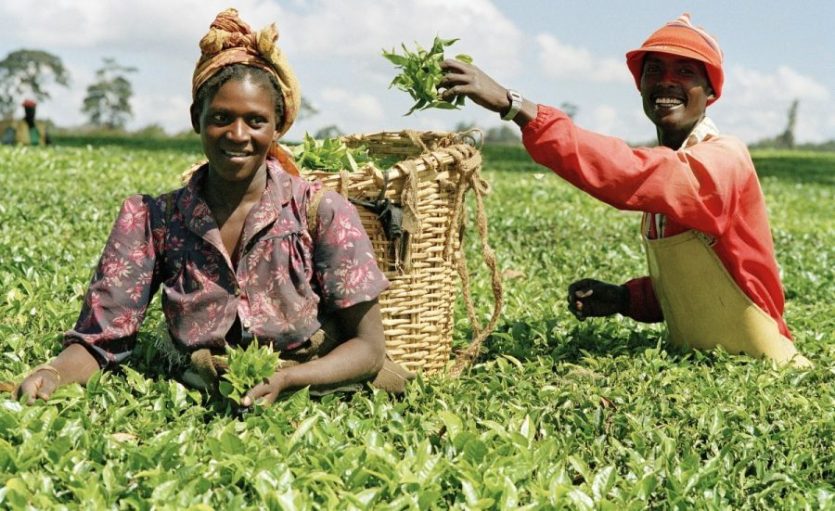The Central Bank of Nigeria (CBN) disbursed the sum of N299.16 billion through six (6) Agricultural Schemes in 2018.
According to the Central Bank’s annual report for 2018, the agricultural schemes include the Commercial Agriculture Credit Scheme, Anchor Borrowers’ Programme and Paddy Aggregation Scheme.
The other schemes are the Agri-Business/Small and Medium Enterprises Investment Scheme, Non-Oil Export Stimulation Facility and the Export Development Facility and Micro, Small and Medium Enterprises Development Fund.
Breakdown of Disbursements: Data obtained from the CBN 2018 annual report show that the Anchor Borrowers’ Programme received the biggest loans disbursement of N188.9 billion, followed by the Commercial Agriculture Credit Scheme (N79.71 billion).
Also, disbursement to other agriculture schemes are Agri-Business/Small and Medium Enterprises Investment Scheme (N33.94 billion), Paddy Aggregation Scheme (N30.4 billion), Non-Oil Export Stimulation Facility and the Export Development Facility (N25.4 billion), Micro, Small and Medium Enterprises Development Fund (N6.37 billion) and the Agricultural Credit Guarantee Scheme (N4.38 billion).
Anchor Borrowers’ Programme: Under this scheme, the sum of N118.96 billion was disbursed in 2018 through 19 participating financial institutions to 646,213 smallholder farmers.
• The Commodities financed under the ABP include the castor seed, cocoa, ginger, oil palm, sesame seed, tomato and cattle fattening.
• According to the report, the Northern part of the country had 581,336 beneficiaries who cultivated rice, maize and sorghum, while in the South, 64,877 farmers participated in the production of fish, oil palm, poultry and cassava.
Commercial Agriculture Credit Scheme: The CBN stated that the sum of N79.71 billion was released to 12 banks, in respect of 40 projects, in the review year. This comprised 35 private projects, valued at N57.12 billion, and 5 state government-sponsored projects, valued at N22.60 billion.

The Paddy Aggregation Scheme: The Paddy Aggregation Scheme (PAS) was approved in 2017 for integrated rice millers. Disbursements under the first phase of the PAS were concluded in November 2018, with the sum of N30.40 billion released to 4 banks to finance 8 integrated rice millers in the review year.
The Agri-Business/Small and Medium Enterprises Investment Scheme (AGSMEIS): At end-December 2018, the sum of ₦33.94 billion was received from 23 banks, compared with ₦26.86 billion from 21 banks at end-December 2017.
Cumulatively, the sum of ₦60.80 billion had been aggregated under the Scheme for on-lending to MSMEs across the country.
The Non-Oil Export Stimulation Facility and the Export Development Facility: The Non-Oil Exports Stimulation Facility was sustained in 2018. The Facility was introduced to deepen the non-oil sector by facilitating access to affordable financing by export-oriented firms and reposition the sector for greater competitiveness and foreign exchange earnings.
The sum of ₦25.4 billion was disbursed under the NESF, in 2018, to eight (8) obligors who exported agricultural commodities such as cashew, sesame seeds, among others.
The Micro, Small and Medium Enterprises Development Fund (MSMEDF): A total of N6.37 billion was disbursed under the wholesale funding and grant components of the scheme.
The breakdown of the disbursements under the wholesale component indicated that N4.50 billion (70.6%) was disbursed to state government; microfinance banks, N1.15 billion (18.1%); Non-Governmental Organisation – Microfinance Institutions (NGO-MFIs), N93.00 million (1.4%); banks and N57 million (0.9%).
The Agricultural Credit Guarantee Scheme (ACGS): According to the CBN report, under this scheme, a total of 30,612 loans, amounting to N4.38 billion, were disbursed in 2018.
• A further breakdown in value terms shows that N4.26 billion (97.4%) was granted to individuals; N470.0 million (1.1%) to self-help groups; N470.0 million (1.1%) to cooperatives; and N16.0 million (0.4%) to companies.
• In terms of the value of loans guaranteed, food crops accounted for N2.42 billion; livestock N0.63 billion; mixed farming N0.49 billion; cash crop N0.45 billion; fisheries N0.30 billion and others N0.08 billion.
Road to diversification? According to the CBN, loans were disbursed through the different schemes in order to sustain the bank’s developmental activities, in response to increasing demand for economic diversification and sustainable development.
• While the government has disbursed N299 billion on a plethora of policies, the agricultural sector failed to show much-needed growth in recent times.
• It should be noted that in 2018, the agricultural sector grew the fastest at 2.12%. However, in terms of contribution to GDP, the sector contributed just 25% in 2018, behind the services sector (52%)
• Experts have questioned why the sector has dragged on for so long without significant growth.
Nigerian Economy: A quick check in to Nigeria’s employment data shows that the agricultural sector remains the biggest employer of labour. As at the third quarter of 2018, the number of Nigerians (employed and underemployed) in the agricultural sector stood at 32.3 million. This represents over 46% of the total employed population.
In the meantime, while several policies have been introduced to boost production in the sector, government needs to do more as the sector holds the key to Nigeria’s economic stability in the face of current global headwinds.
Source: Nairametrics

